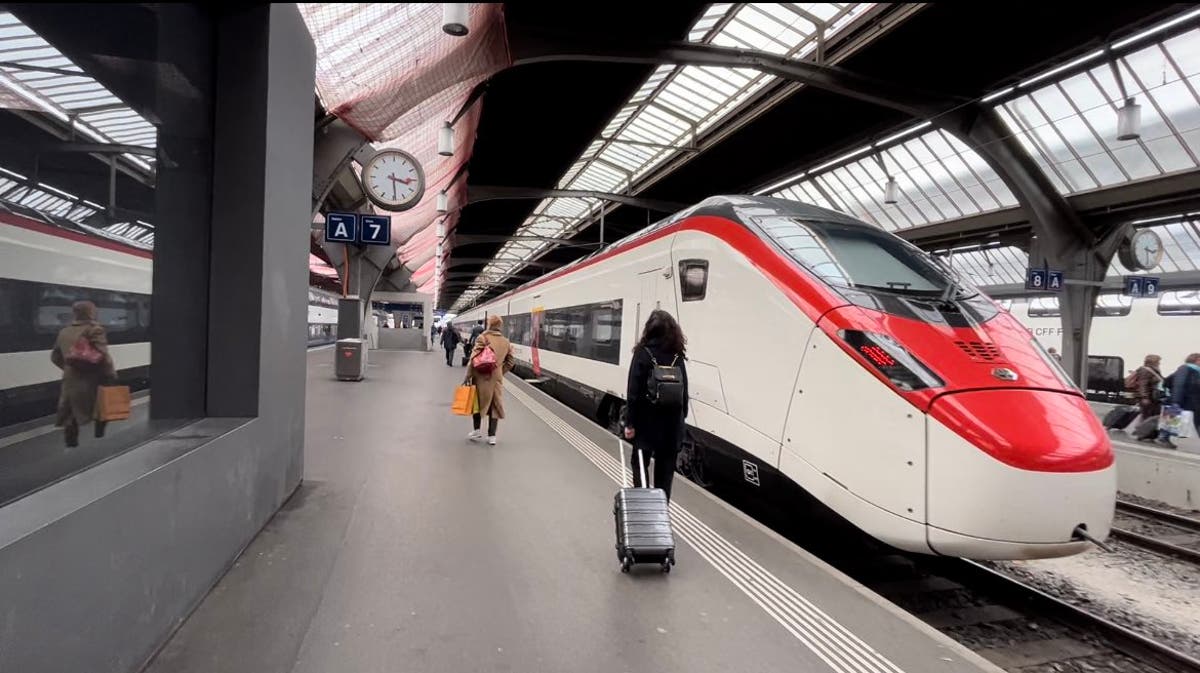Two top jobs in UK transport. Any takers for these toxic chalices?
The Man Who Pays His Way: Who would want to be boss of Avanti West Coast or secretary of state for transport?

Simon Calder, also known as The Man Who Pays His Way, has been writing about travel for The Independent since 1994. In his weekly opinion column, he explores a key travel issue – and what it means for you
This month, two top jobs in UK transport are up for grabs. But why would anyone want to accept either of these most toxic chalices?
On 15 September the post of managing director of Avanti West Coast becomes vacant. Phil Whittingham leaves his post.
Mr Whittingham is an experienced, successful and well-regarded railway executive – as shown when Avanti West Coast kept him on as managing director after winning the franchise to run from London Euston to the West Midlands and northwest England from Virgin Trains.
But I guess someone needed to take the rap for the shambles in which Avanti West Coast – and its passengers – find themselves. On the two key lines from Manchester and Birmingham to London, only one train is running each hour, rather than three.
Timetables are being fed to the prospective traveller in dribs and drabs. The reason: train drivers who would need to work on their rest days to fill the schedule are not interested in cooperating while the most bitter pay dispute in decades plays out. Both the drivers’ union, Aslef, and the RMT will walk out on 15 September.
Strife will continue, say the unions, until we get a decent pay offer that takes account of inflation. We worked through the coronavirus pandemic and can’t agree to a real-terms cut in pay.
Revenue has slumped by one-fifth since Covid, say the train firms. The previous rail business model, with season-ticket holders in southeast England bankrolling the whole system (with a bit of help from taxpayers) is gone forever. So we can only afford to pay you more if you agree to more efficient working practices.
No chance, say the unions, unless we extract a baked-in pay rise on top of our cost of living increase.
As the focus of public outrage, Avanti West Coast has picked up the baton from previous holders: Southern Railway and Northern Trains. Greater Manchester mayor and would-be Labour leader Andy Burnham clearly sees political advantage in demanding Avanti be stripped of its franchise, even though he surely knows it will make not the slightest difference while the current paralysis prevails.
Which brings us to the other top job: Her Majesty’s secretary of state for transport. The current holder, Grant Shapps, has been rather too busy campaigning in the leadership election to pay much attention to the unravelling railway – but unfortunately for him, he has been backing (according to most forecasts) the loser, Rishi Sunak. I imagine he is resigned to returning to the back benches as soon as Liz Truss takes over.
So who is next? There is one obvious, qualified and competent contender for the job: Huw Merriman, chair of the transport select committee. The MP for Bexhill and Battle understands transport and the tangle of seemingly intractable challenges that beset it, from road pricing to post-Brexit shortages of staff – and tourists.
He is also aware that comprehensive reform of the railways is essential to avoid managed decline (or even worse, mismanaged decline). But as another Sunak supporter, Mr Merriman is unlikely to be waiting by the phone for a call from No 10 any time soon.
Whoever comes into the role – and from what I know about politicians, there will doubtless be jostling for the job – will swiftly learn that the railways are in their worst state for decades.
In my newsletter, I offered some help to the incoming prime minister. Allow me to do the same for the new transport secretary. Loosen the purse strings enough to allow the railways to run relatively smoothly through the winter, rather than lurching from strike to strike.
Then begin the root-and-branch reform of everything from working practices to fares. Tell passengers and rail workers the truth: that the network is on the brink. Significantly higher fares in some places, lower prices to stimulate demand in others, and better ways to work.
Good luck.

 ShanonG
ShanonG 
































